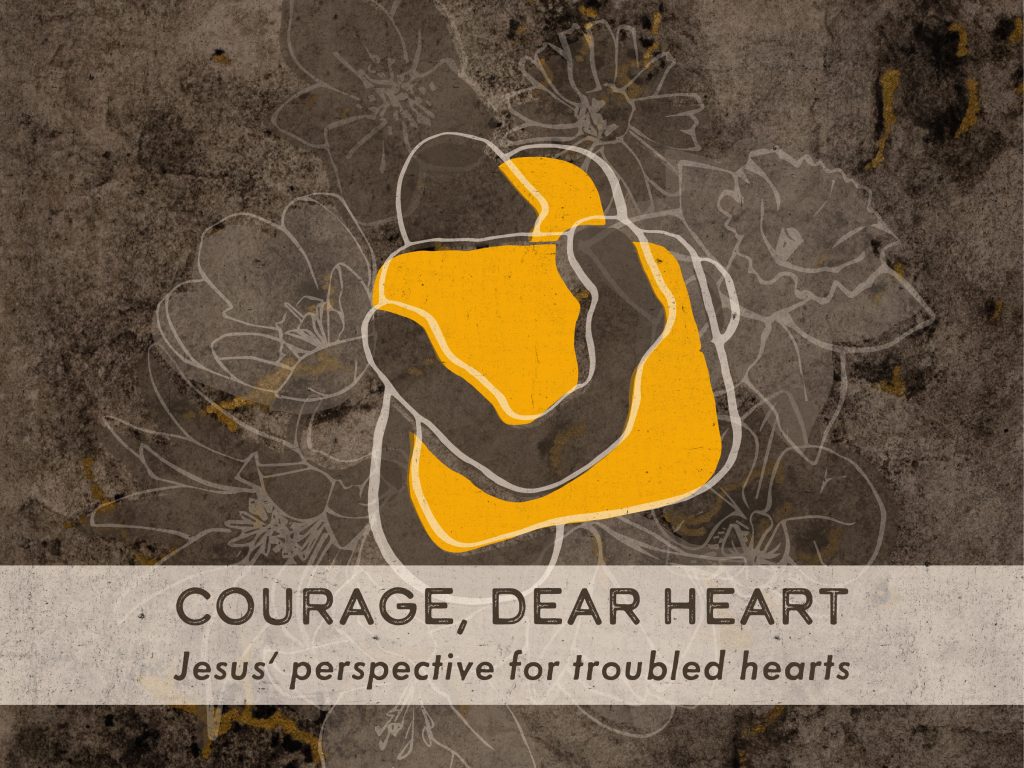Passage: John 16:16-33
Guide for Group Discussion or Personal Reflection
Sermon Overview
On Jesus’ final night, when all seemed grim, he pointed his disciples towards a new and indestructible joy that would soon be theirs. Though they would soon “have sorrow”, he told them, “I will see you again, and your hearts will rejoice, and no one will take your joy from you” (16:22). What was this new joy that Jesus said he would bring into the world?
For one, Jesus spoke of a joy that suffering could not take away but could only enhance. In God’s economy, he is able to make all of our sorrows work for our greater joy. It is not simply a matter of sorrow preceding joy, but of sorrow actually producing joy. The ultimate instance of this was of course the imminent crucifixion of Jesus—his most sorrowful moment, which was coming in just “a little while” and would be filled with “weeping” and “lamenting”. His cross, though sorrowful, would be the very means of producing joy for the world. Jesus illustrates this principle using the image of a woman giving birth—though she labors in pain, the labor pains themselves are bringing forth the joyful birth of a new human life. Therefore, as Jesus’ followers’, we can have hope that whatever suffering we’re going through, God is somehow using it to produce and enhance our lasting joy.
And finally, the joy that Jesus brings involves the assurance that we are heard by our Father. We are not alone in our suffering, but can go directly to God, our Father, in Jesus’ name—not even needing to have Jesus ask, “on our behalf”, but asking God ourselves for what we need. Jesus’ promise is profound: “Whatever you ask the Father in my name, he will give it to you” (16:23). To go to our Father “in Jesus’ name” is to go to God boldly because of the finished work of Jesus, and in line with Jesus’ heart and priorities. We should take advantage, therefore, of the access we have to our Father, and go to him constantly in our need.
Truly, we are in a privileged position as Jesus’ followers. No matter how dark things might seem, and no matter what “tribulation” we face, we can “take heart, for Jesus has overcome the world” (16:33).
Sermon Outline:
- Jesus’ Joy is Enhanced, Not Robbed by Suffering (vs. 16-22)
- Jesus’ Joy Brings Assurance that We Are Heard by Our Father (vs. 23-33)
Group Discussion & Personal Reflection Guide
Re-read the passage(s): John 16:16-33
Jesus’ Joy is Enhanced, Not Robbed, by Suffering (vs. 16-22)
1) Re-read John 16:16-20 and meditate on these verses together. Consider:
• How do you think the disciples were feeling at this time? What were they confused about? Why do you think they were hesitant to ask Jesus for clarification?
• Why does Jesus say that the world would soon “rejoice”, even though his disciples would “weep and lament”?
2) Re-read John 16:21-22. How does the analogy of a woman giving birth help Jesus’ disciples understand and reframe the suffering he was about to go through? How might the analogy of a woman giving birth help us today to reframe and understand our own suffering?
3) In the sermon, Pastor Bobby said that Christians have the assurance that our sufferings will not only be followed by joy, but that our sufferings will themselves produce and enhance our future joy. Is there a time or area of your life where you’ve experienced this—sufferings enhancing your future joy? Is there a suffering you’re currently going through that seems hard to imagine how it could produce joy for you in the future? If so, how might you entrust this to God?
4) How does Jesus’ crucifixion and resurrection in particular give us a unique confidence that God can make our sufferings work for our joy?
Jesus’ Joy Brings Assurance that We Are Heard by Our Father (vs. 23-33)
5) Re-read John 16:23-28, and meditate on these verses together:
• Where in these verses do you see Jesus assuring the disciples with the access they now have to God? How does he communicate this?
• What does it mean to truly ask “in Jesus’ name”? (vs. 23). What is the difference between Jesus “asking the Father on (our) behalf” (vs. vs. 26), and our going to our Father ourselves, “in Jesus’ name”?
• How is our access to God connected to Jesus’ going back to his Father?
6) What keeps you from going to God as boldly and freely as Jesus commends here? What would it look like in your life to go to God that much more freely?
7) Re-read John 16:29-33. In these verses, Jesus both challenges and assures his disciples. How does he challenge them? How does he assure them?
8) In John 16:33, Jesus says, “I have said these things”—referring to the whole upper room discourse—“that in me you may have peace”. Think back on everything Jesus has said in the upper room. Which part of it is particularly peace-giving to you right now? Which part might bring peace for a friend you know?
Additional Application Questions
Q) How else would you like to engage with God this week?
Q) How can you tangibly care for those in your community this week, both inside and outside of the church?
Prayer
Spend time praying for yourselves, our church community, the North Shore community, and our nation and world—particularly those most vulnerable.

